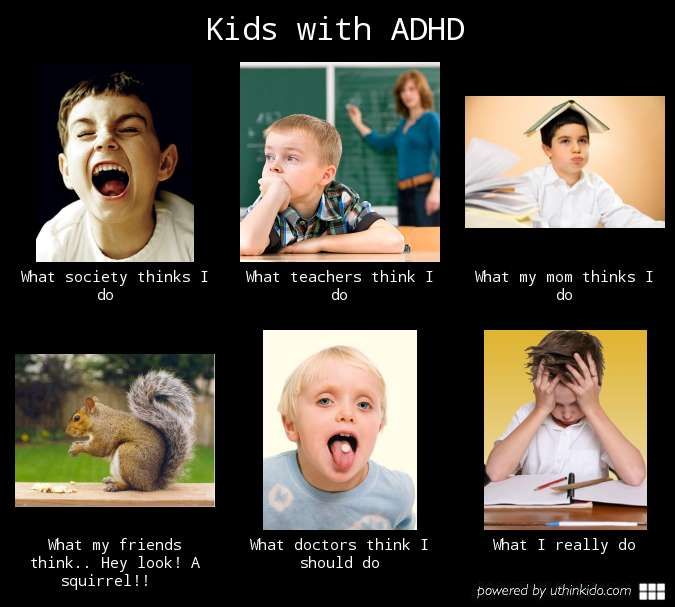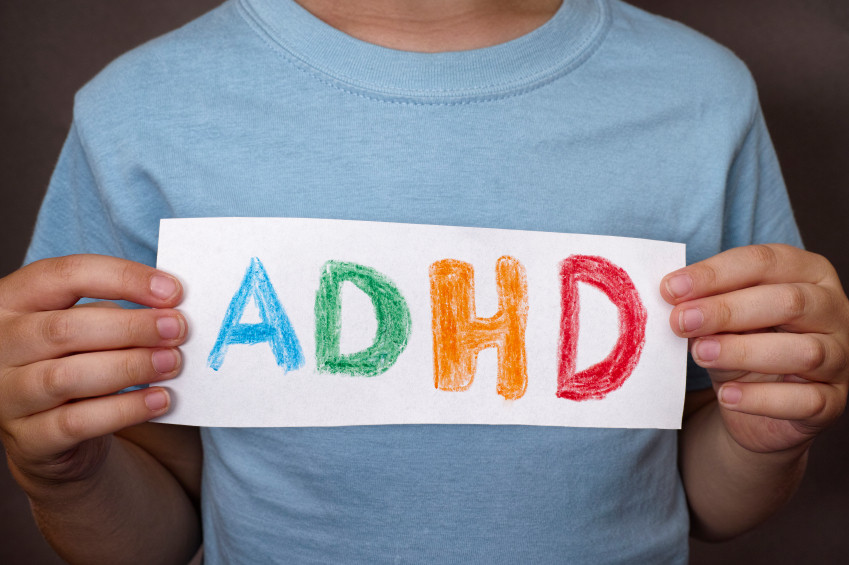Let’s even dispel a few myths about ADHD.
Those of us that know anything about ADHD (attention deficit hyperactivity disorder) understand that it’s a very real condition and affects more people than others might think. But what some folks still don’t understand is that it’s not a desperate need for attention, it’s not about bad behavior, and it’s not an excuse for being lazy or disorganized. It’s also not something that requires multiple medications to be shoved down a person’s throat or hours and hours of therapy unless there’s something else going on that ADHD manages to exacerbate, or vice versa. In other words, let’s learn a little bit about ADHD and what’s really going on before judging people that appear to bounce off the walls with very little effort.

What is it like to live with ADHD?
It’s not much different some days from everyone else, since this disorder doesn’t turn anyone into anything more or less than human. But it is a serious disorder that affects brain functions and causes the brain to mature slower than it might in others. The problem with this is that slowing down development means that the individuals that have this disorder might have trouble paying attention or focusing on any one thing for a long period of time. Do you know who else this happens to? Kids that are still trying to reach their milestones as they grow are experiencing this at the same time, but kids with ADHD tend to have issues learning at the same rate as their peers, but it’s not the end of the world. Here are a couple of misconceptions that need to be put to rest eventually though.
- People with ADHD aren’t lazy simply because of the disorder. They might appear to be daydreamers and lazy individuals that don’t do enough and are more prone to screwing off than staying on task. But ask yourself, from a developmental standpoint, how attentive were you when you were a kid? Kids with ADHD do tend to lack focus, but there are a number of ways that can be used to alleviate this concern.
- They don’t have behavioral problems brought on by the disorder. Many people might still want to disagree with this argument since they might have met with a kid that was diagnosed with ADHD. But the truth is that it goes back to development. They typically haven’t fully developed the skills that are needed to calm and regulate themselves yet. Imagine a rowdy child that never developed the mental discipline to remind him that people didn’t enjoy when he acted like a little animal. Now imagine that child growing up as that discipline struggles to grow and keep up with the same child. It’s not a perfect explanation, but it’s one that makes sense.
- Throwing medication at the disorder isn’t going to ‘cure’ it. For a while now a lot of people have thought that by throwing pills at an illness or a disorder that they can somehow make it go away. But that’s not how ADHD works. It’s not a disease that will be eliminated by shoving pills down a kid’s throat. Granted, there are medications that can help to even a person out, but there are also other methods that I’ll get into in a bit that people have found equally helpful.

What can help a person with ADHD?
There are several things that can be done to help those with ADHD. But while adults might have, hopefully, gained a handle on the condition at a certain point, kids usually have a harder time due to less life experience and therefore less of an idea of what they can do. Gaining a better understanding of the disorder is a big deal and can help people when it comes to really paying attention and helping out when and where they can with ADHD. It’s not a condition that will magically go away and will require a lot of patience, but for kids, here are just a few things that can be done.
- Give them structure. A routine that they follow every day isn’t weird and it isn’t going to set them apart from others aside from the fact that chaos isn’t their friend at this point. The longer the routine can be followed, the more they might be able to handle as they continue to grow and develop. Don’t push them too hard, but definitely gauge what they can do as they continue to grow and add to or alter the routine accordingly.
- Simplify, simplify, simplify. You don’t have to make things so simple that they’re mind-numbingly boring, but keeping things simple in order to make it easy for a child to transition from one part of their day to the next is crucial for those that can be overstimulated so easily. If you haven’t figured it out already, ADHD individuals aren’t slow or dumb, they’re simply trying to absorb to much at once since, due to their developmental disorder, they haven’t learned to shut certain things out and focus on only one or two things at once.
- Definitely find ways to keep a child busy, including exercise and busy work that can lead to discernible goals. Keeping them on track might be difficult for a while, but once they learn this trick and the importance of it, they can become capable of self-regulation, especially if one has patience and can provide the child with a great example to fall back on.
- Encourage them when they have something to share, but exercise patience as well. Kids with ADHD need to develop the focus that other kids might have already found when they were younger or are finding at the current age. It’s going to take time and a lot of diligence to make this happen, but one of the worst things anyone can do is simply ignore a kid with ADHD in the hope that they’ll get the lesson. This won’t work, and in fact it will only worsen the situation by creating an anxious and even depressed individual who feels that no one listens to them. Let them ask questions, but teach them the patience and the focus they need with each occurrence.

Treat ADHD folks like anyone else
Whether they’re kids, teens, or adults, treat people that have this disorder with the same type of respect as you would anyone else. This isn’t something they can control without a bit of help and understanding along the way. People with ADHD don’t need to be coddled and they don’t need to be separated from others due to their disorder. They require a bit of help to focus, to stay on task, and to simply be the best individuals they can be around their peers. They have a disorder, not a disease, and in any case, treating them like anyone else is usually better for everyone involved.
WTR? (Why’s That Radass?)
Here at Radass we’re all about respecting and understanding people as best we can. Millions of people are afflicted with one condition or another and they find ways to make it work by seeking to educate and empower others, and themselves, when it comes to understanding that a condition such as ADHD doesn’t make someone less of a person. Sure, they might seem off or distracted at times, but folks with this disorder require understanding and patience more than anything.








